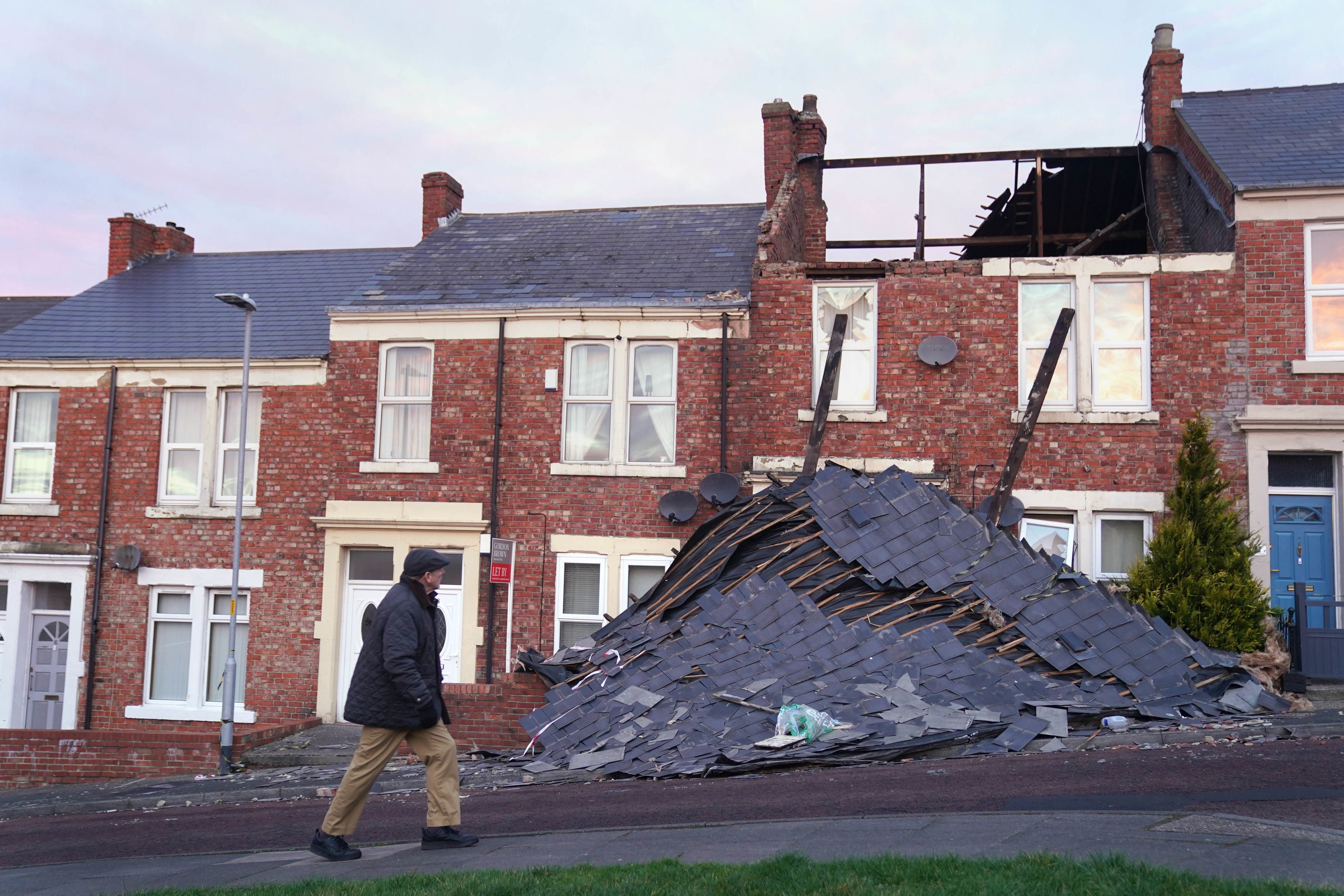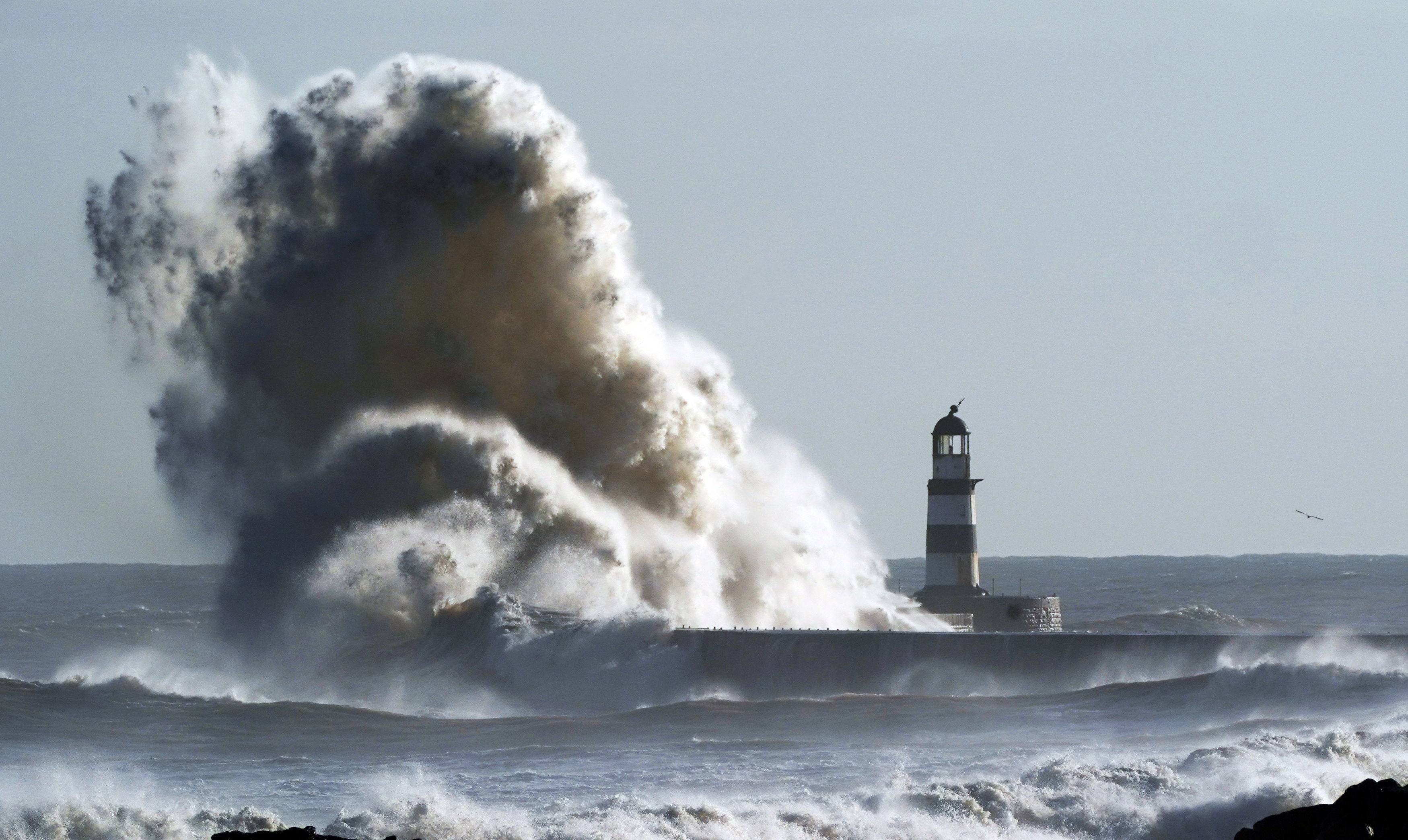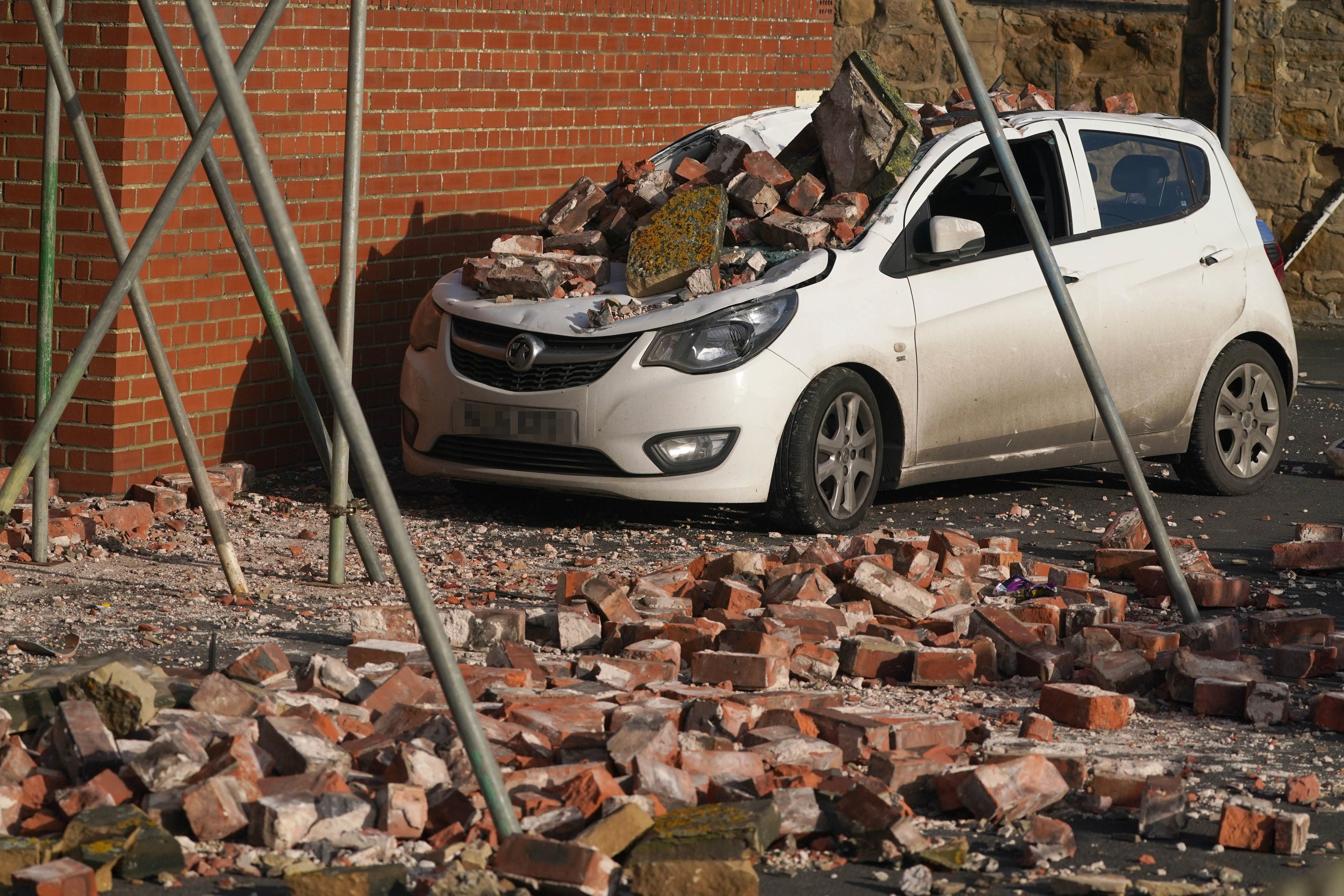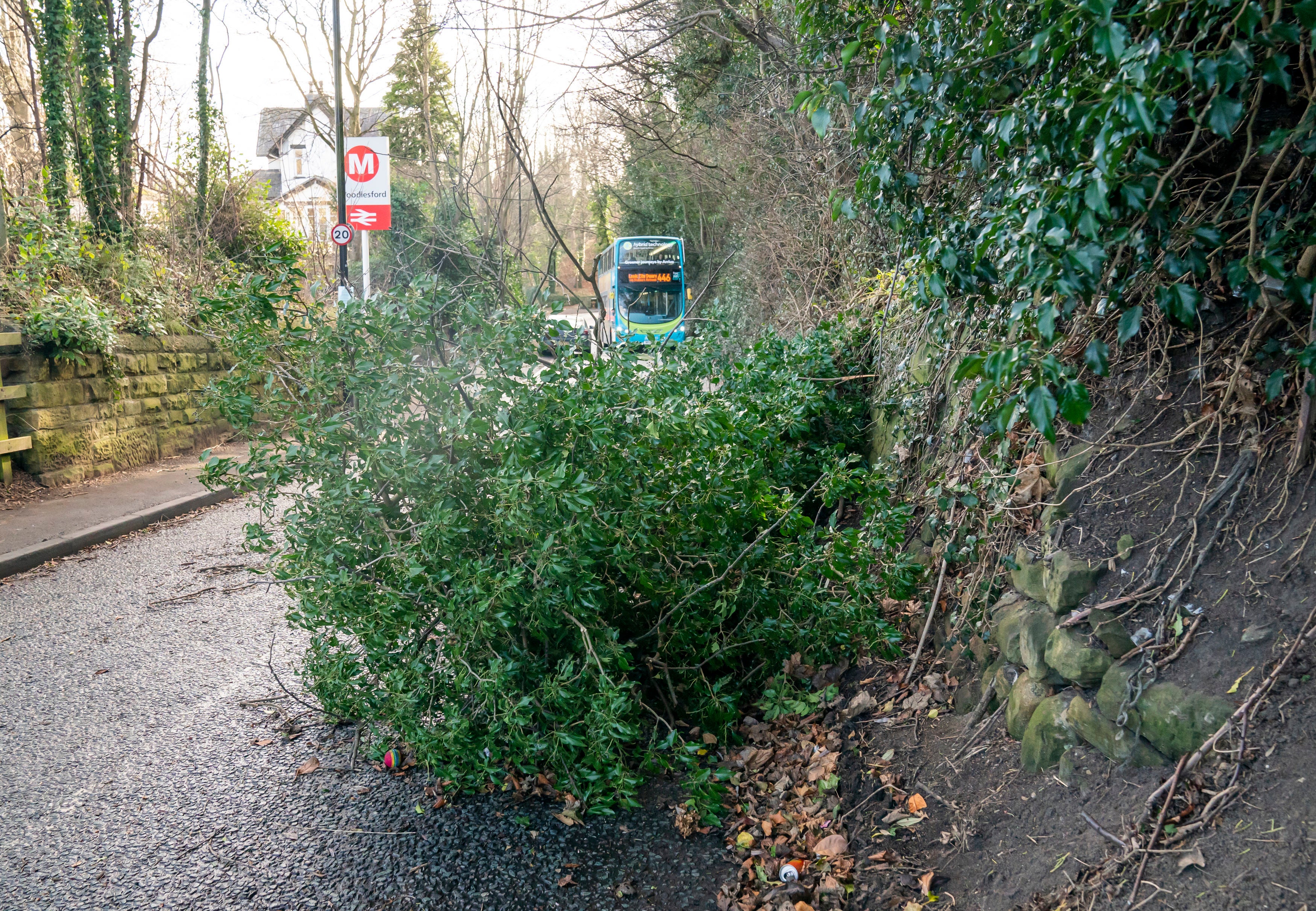Thousands face days without power after storms batter Britain
Storm Malik and Storm Corrie disrupted electricity supplies in almost 40,000 homes

Your support helps us to tell the story
From reproductive rights to climate change to Big Tech, The Independent is on the ground when the story is developing. Whether it's investigating the financials of Elon Musk's pro-Trump PAC or producing our latest documentary, 'The A Word', which shines a light on the American women fighting for reproductive rights, we know how important it is to parse out the facts from the messaging.
At such a critical moment in US history, we need reporters on the ground. Your donation allows us to keep sending journalists to speak to both sides of the story.
The Independent is trusted by Americans across the entire political spectrum. And unlike many other quality news outlets, we choose not to lock Americans out of our reporting and analysis with paywalls. We believe quality journalism should be available to everyone, paid for by those who can afford it.
Your support makes all the difference.Thousands of homes have been left without power after two storms wrecked the electricity supply in Scotland.
Storm Corrie brought winds of more than 90mph to areas such as Inverbervie – higher than the speeds recorded during Storm Arwen last year.
It hit a peak on Sunday evening after Storm Malik, which tore down trees, damaged power lines, ripped roofs off homes in northern England and Scotland on Saturday.
Due to the strong forces, almost 40,000 properties in Scotland had their electricity supply disrupted after the two storms came within 48 hours of each other.
Electricity bosses have warned that it could take until Wednesday for supply to be fully restored to the affected areas.
Scottish and Southern Electricity Networks (SSEN) remained on “red alert status” in northern Scotland as teams dealt with the aftermath of the damage caused by the storms.
According to SSEN’s initial assessments, about 38,000 customers had their supply disrupted because of Storm Corrie, but the utility provider has now restored power to more than 4,000 customers, with some 33,000 still left without electricity.
About 7,000 people still remain without power after Storm Malik, although supply has been restored to about 68,000 customers.

Richard Gough, director of distribution system operations at SSEN, said: “Our teams have continued to make strong progress restoring power to customers impacted by the extreme weather from Storm Malik, with over 90% of those customers restored.
“Whilst our teams are making every effort to restore customers as soon as possible, the cumulative impact of Storms Malik and Corrie has compounded the restoration challenge.
“As a result, we are advising customers that while expected restoration of customer supplies from Storm Malik remains Tuesday evening, restoration times for some of those impacted by Storm Corrie may now extend to Wednesday.”
He continued: “Our teams are doing all they can to restore power as quickly as possible, where it is safe to do so.”
The Northern Powergrid also released a statement, stating: “There is still a lot to do – we have around 200 incidents to restore supplies to those customers across Northumberland, County Durham and Tyne and Wear.
“We have imported additional resources into the region and we are confident that we will successfully restore supplies for the vast majority of those customers - and we intend to do everything we can to get them all done.
“There is the possibility that a small number will run into Tuesday - the weather has caused us some additional disruption overnight that we also need to handle during the course of today.”

It added that they had learnt from November’s Storm Arwen, which led to widespread complaints about the way the firm communicated with customers who had lost power
Stewart Sexton, 58, Alnwick, Northumberland, lost power for 35 hours over the weekend and had experienced a similar situation during Storm Arwen last year.
He told the PA news agency: “To be honest I’m enraged. This situation never happened before Arwen yet we did get storms.
“It’s all about a lack of maintenance of the infrastructure and no resilience plan from Northern Powergrid.
“We have had power cuts for 298 hours since 26th November, just over two months.
“By any reckoning that must be unacceptable and it indicates that there is certainly something wrong with the infrastructure around our communities while neighbouring larger villagers didn’t lose power at all.”

Work had been put in place to make sure Scotland was better prepared too, Deputy First Minister John Swinney said.
He told BBC Radio Scotland’s Good Morning Scotland programme: “I think it was very clear that there was a much stronger join-up between the power companies and the local resilience partnerships over the course of the weekend.
“There has been and continues to be an extensive network of various centres and catering facilities available for people around about the communities that are affected by the loss of power, and individual contacts by the power companies with individuals.”
A nine-year-old boy in Staffordshire and a 60-year-old woman in Aberdeen died after the strong winds tore down trees on Saturday.
Several schools were closed or delayed opening on Monday in Aberdeenshire due to the disruption.
The main affected areas that continue to be affected by the aftermath of the storms are rural Aberdeenshire and the Angus border. Households also remain without electricity in Perthshire, the Highlands, Western Isles and the Moray coast.
Join our commenting forum
Join thought-provoking conversations, follow other Independent readers and see their replies
Comments